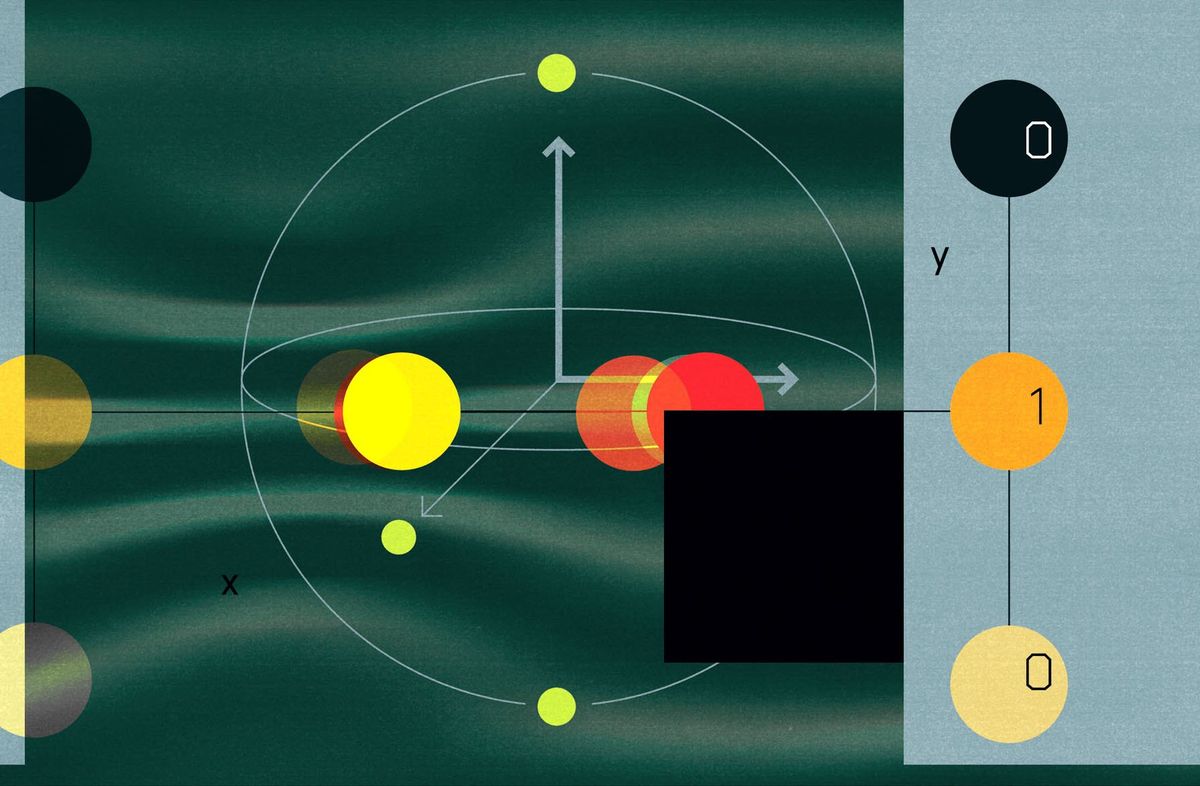The quantum computers that IBM, Google, Amazon, and others are developing face daunting challenges on the road to practical applications. Now it turns out that they may face a fundamental limit to large-scale performance—the imperfect nature of all clocks.
Quantum computing can theoretically find answers to problems that classical computing would take eons to solve. The more components known as quantum bits, or qubits, that a quantum computer links together, the more basic computations known as quantum gates it can perform.
Whenever a quantum computer performs an operation, it has to expose its components to very specific forces for a very specific amount of time, explains study lead author Jake Xuereb, a quantum physicist at the Vienna University of Technology. Therefore, accurate timekeeping is critical.
“We only have knowledge of time with reference to some clock.” —Jake Xuereb, Vienna University of Technology
However, perfect clocks don’t exist. The researchers note that every clock has two key properties—its resolution and its precision. Its resolution describes the smallest piece of time a clock can measure, and its precision explains how much inaccuracy one can expect with each tick of the clock. Physics dictates that in the absence of having an infinite amount of energy available to it, a clock can never have both perfect resolution and perfect precision at the same moment, the scientists found.
“Time is often taken for granted,” Xuereb says. “Physicists seem to think it’s this parameter that they have full knowledge of and they can chuck into their equations for free. But this isn’t true—we only have knowledge of time with reference to some clock.”
Given how real clocks are never perfect, the researchers explored the impact that imperfect timing would have on quantum computers. This matter “is definitely a question that had been explored by experimentalists building quantum computers,” Xuereb says. “What was unexplored was the theory of how the physics of timekeeping impacts quantum algorithms.”
Prior work found that timing errors could disrupt individual quantum gates. In the new study, the scientists explored how imperfect timekeeping might impact quantum algorithms made up of a series of quantum gates.
“These errors are far from those impeding current quantum technologies the most. But we feel they will be the hardest to get rid of, resulting in a kind of fundamental limit on the achievable accuracy of a quantum computation due to imperfect timekeeping.” —Jake Xuereb, Vienna University of Technology
The researchers found that imperfect clocks were not a problem for current quantum computers, given the limited number of qubits they possess. However, imperfect timekeeping “becomes much more important when we increase the number of qubits,” says study coauthor Marcus Huber, a quantum physicist at the Vienna University of Technology.
A key factor in quantum-computing performance is coherence time, which is the amount of time it takes for the quantum effects that quantum computers depend on to vanish due to disruptions from the outside world, Huber explains. Currently, quantum computers possess limited coherence time in which to execute quantum gates.
“So ideally, you’d want gates to be as fast as possible,” Huber says. However, as the researchers found, the faster the clocks, the worse the precision. “So for good gates you want to be slow, but that is limited by coherence times. This makes for an interesting interplay whose engineering implications will turn out very differently for different physical platforms.”
Quantum-computing researchers are exploring a variety of qubits as platforms for quantum computers, such as superconducting circuits, trapped ions, neutrally charged atoms, and even frozen neon. “It is quite conceivable that there are platforms for which the coherence time versus gate time competition scales very unfavorably compared to others,” Huber says. Future research can explore the pros and cons of different quantum-computing platforms with regard to imperfect timekeeping, he notes.
All in all, “these errors are far from those impeding current quantum technologies the most,” Xuereb says. “But we feel they will be the hardest to get rid of, resulting in a kind of fundamental limit on the achievable accuracy of a quantum computation due to imperfect timekeeping.”
Future research may also discover techniques that “can really counteract timekeeping errors,” Xuereb says. For example, if scientists could estimate the average amount of error in a clock, they could modify the way in which they manipulate qubits “to cancel out these timekeeping errors,” he says.
The scientists detailed their findings 20 October in the journal Physical Review Letters. A related study was accepted 9 October and is scheduled to appear in an upcoming issue of the same journal.
Charles Q. Choi is a science reporter who contributes regularly to IEEE Spectrum. He has written for Scientific American, The New York Times, Wired, and Science, among others.



